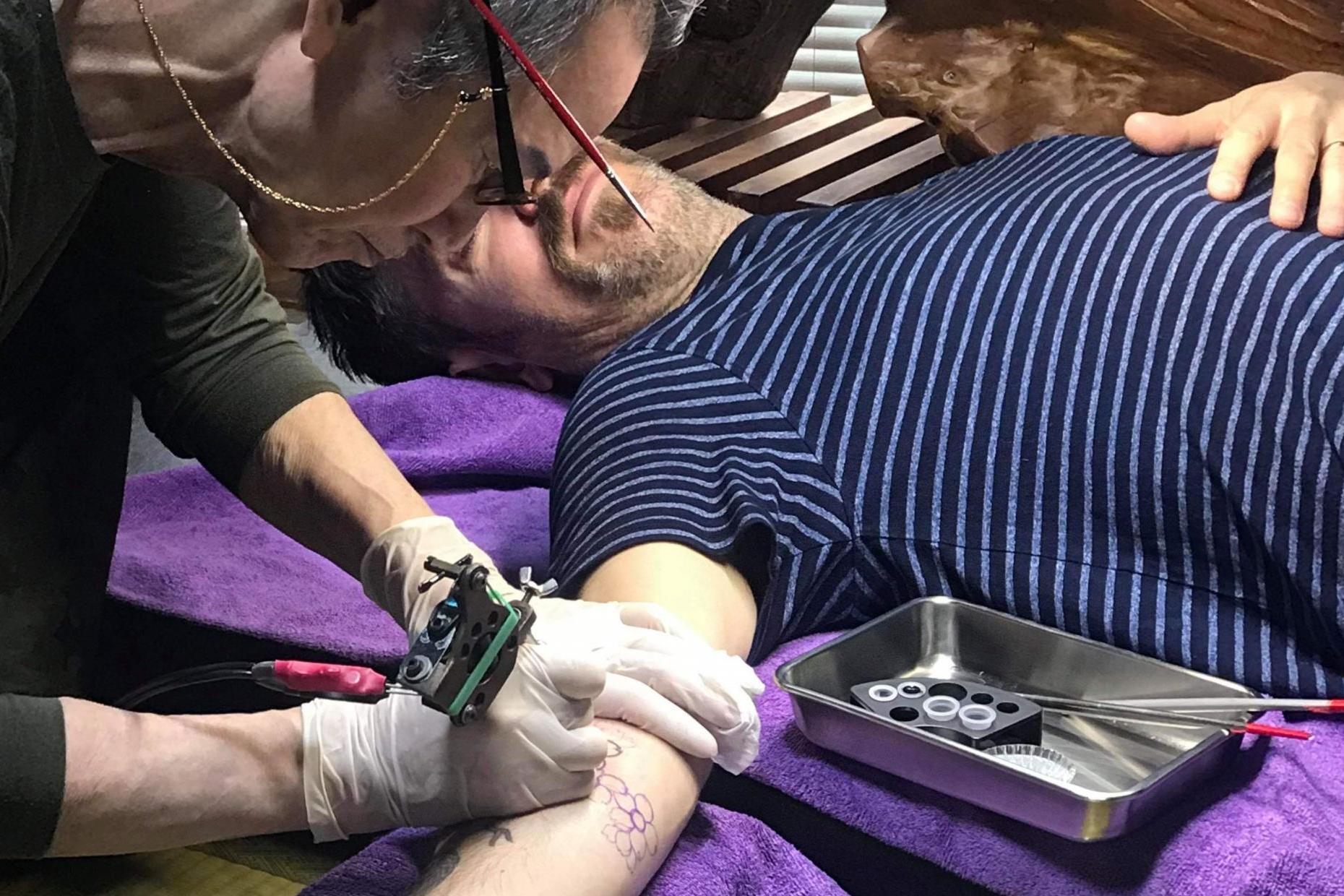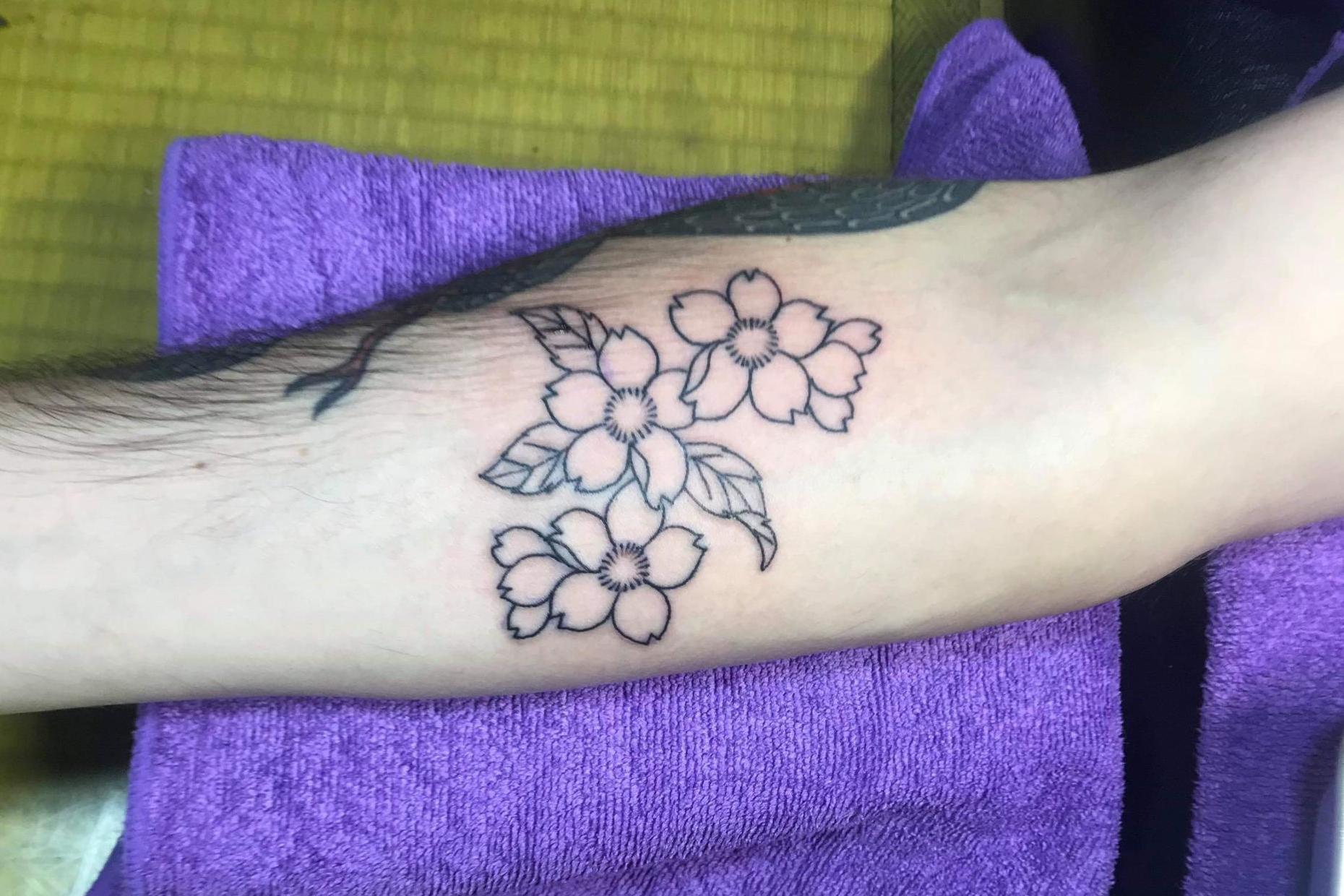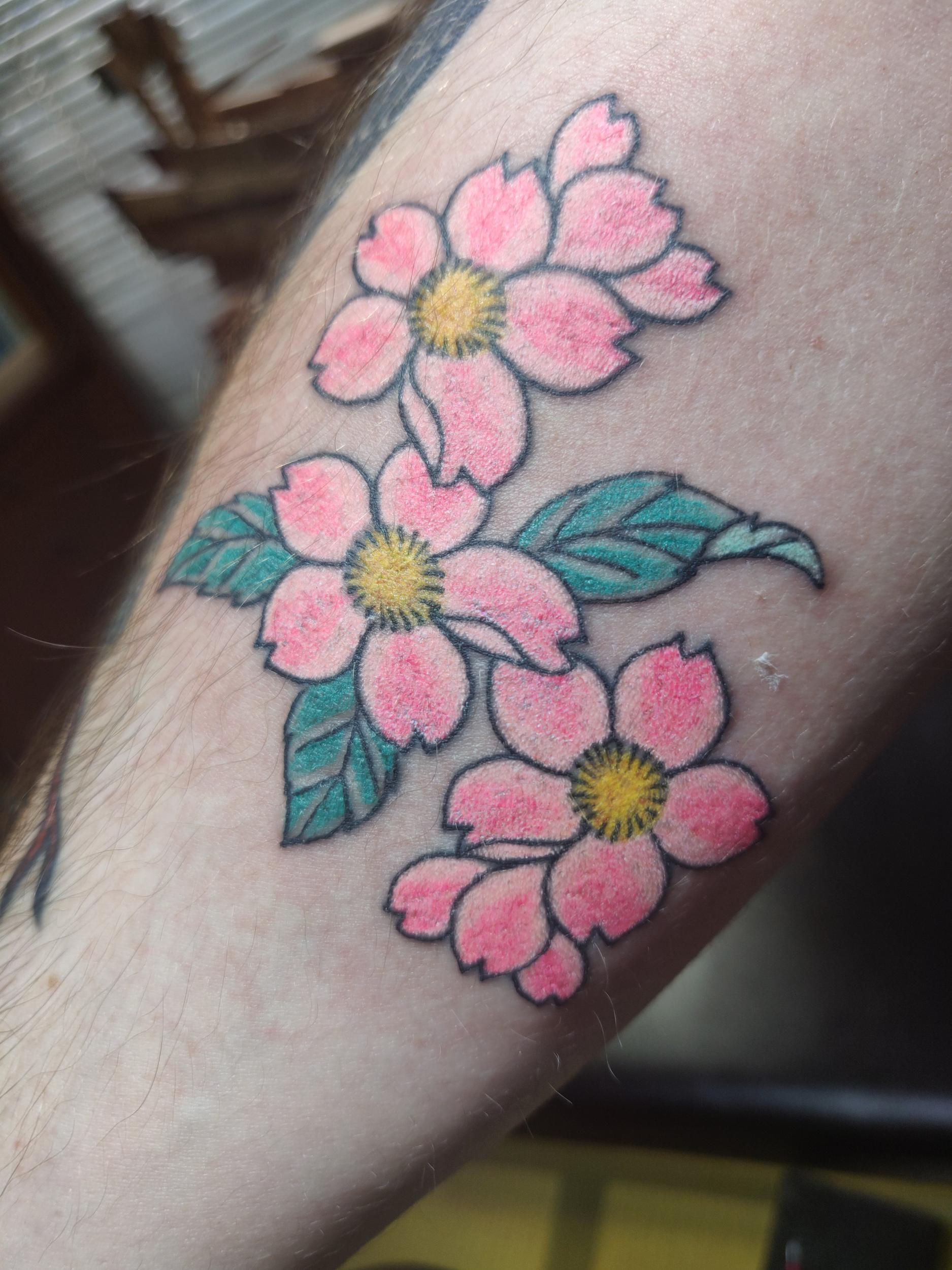Inside a secretive Japanese tattoo master's studio
Andrew Dickens got a permanent souvenir from his trip to Tokyo
Your support helps us to tell the story
From reproductive rights to climate change to Big Tech, The Independent is on the ground when the story is developing. Whether it's investigating the financials of Elon Musk's pro-Trump PAC or producing our latest documentary, 'The A Word', which shines a light on the American women fighting for reproductive rights, we know how important it is to parse out the facts from the messaging.
At such a critical moment in US history, we need reporters on the ground. Your donation allows us to keep sending journalists to speak to both sides of the story.
The Independent is trusted by Americans across the entire political spectrum. And unlike many other quality news outlets, we choose not to lock Americans out of our reporting and analysis with paywalls. We believe quality journalism should be available to everyone, paid for by those who can afford it.
Your support makes all the difference.As I lie on my back in a small Tokyo apartment, a 70-something Japanese man, half his right thumb missing, is rhythmically piercing my skin with minute ink-tipped needles on the end of an aluminium stick. This is tebori, the traditional Japanese method of tattooing. And I’m getting myself a very permanent souvenir.
Getting inked is particularly appealing for visitors to Japan. The country has a history of tattooing that’s longer, deeper and more controversial than any other (more on that later). So, if you’re a traveller looking to get a tattoo, what should you go for?
“Keep it traditional,” says Horikei, a 43-year-old Englishman and the only foreign tattoo apprentice in Japan. (Horikei, as you might have guessed, is not his real name.) “Don’t come all this way just to get something that any decent tattoo artist back home can do.
“Then decide where you want to go. In Japan, there are basically two options: a tattoo shop or a private studio. A tattoo shop is easier to find – Three Tides in Shibuya, Tokyo, for example – and they’ll have a number of artists, so you’ll easily be able to get what you want.
“However, if you want the full experience try to find an artist who works from a private studio. It’s difficult. They don’t do social media and rarely advertise, and you’ll usually need an introduction. Even a small tebori tattoo will takes several hours, so you might not have, or be able to book, the time for a big piece; and clients really should meet their artist for a consultation first. Japanese artists charge by the hour – usually around 10,000 yen (£72) – so it could be expensive. But it’s very much worth it.”
Horikei, a friend from school, introduced me to the half-thumbed man currently stabbing me. His name is Horitoku and he’s possibly the most revered artist in Japan – and also completely private.

When I arrived, I told Horitoku what I wanted – a sakura, the Japanese cherry blossom, on my forearm – and that I wanted one that took about an hour. That was my final input. Horitoku took both my hands and began gently rotating my arms, like a slow-motion replay of a table football match, making facial gestures that implied some deep consideration.
A minute or two later, he reached for a small paint brush and began to create an outline. There was nothing I could do from there on other than have faith in his experience or run out screaming. It’s a bit like trusting your parachute instructor.
“A shop will be much the same as at home,” says Horikei. “The client will have a lot of say in what they want. A private artist will give you less choice, so you’ll have to go with what they suggest most of the time. This is actually quite helpful when the artist doesn’t speak much English.
“Gamman (perseverance) is also very important in Japan. If you get tattooed traditionally it’s bad form to move or grimace and you will only be given a five-minute break every hour, so good luck!”
I give good gamman. I think I have a masochistic streak. I lie back and think of ramen, giving in to the rhythm of Horitoku’s needles and tissues. Stab, stab, dab. Stab, stab, dab. I also watch him work. It’s incredibly skilful, especially when you consider the half-thumb. And this is where the controversy comes in.
For centuries, tattoos have been associated with crime and criminals in Japan, particularly the organised gangs known as yakuza. Their ritual punishment is yubitsume, the self-mutilation of the little finger. Horitoku claims to have lost his thumb in an “accident”.

But it’s thanks to the yakuza that the Japanese tattoo scene is so respected. Tattoos were used to mark prisoners with the crimes they’d committed. To “own” this branding and cover up their fleshy rap sheet – as well as demonstrate strength and masculinity – yakuza adopted elaborately artistic designs, most notably thick sleeve tattoos. Horitoku says that for decades he only ever tattooed yakuza, but all that has changed.
From this grew what can best be described as an underground art scene, with people proudly wearing their collections on their bodies.
“Each artist has a different, recognisable style,” says Horikei. “For example, the mikiri (black bars that make up the background to a ‘sleeve’) can be thick and black or thin and lighter – or a combination. Do some research.”
Even today it’s still illegal for anyone without a medical licence to pierce skin, though a blind eye is turned. And you definitely won’t get collared for that blurred Celtic band you had done in 2002 – even if it’s a crime against good taste. But there’s still enough stigma and fear here to make it prudent to cover up much of the time, and for Horikei not to use his real name online. He has a day job.

After two-and-a-half hours, my tattoo is finished. Yes, I’d asked for an hour, but Horitoku decided otherwise. He only charges me for an hour, though, which means I’m now decorated with a beautiful, glowing sakura, by one of the world’s great tattoo artists – and it cost me £70. I’m buzzing. Not from the price, not just from how it looks, but from the experience: I tasted a bit of history, I let go of control, and showed off my gamman. Horikei agrees.
“Japan has some of the best artists in the world,” he says. “If you’re serious and find a good artist, it’s a once in a lifetime experience. Lie still, don’t make a fuss and enjoy.”
Travel essentials
Getting there
British Airways flies to Tokyo from £567pp return.

Join our commenting forum
Join thought-provoking conversations, follow other Independent readers and see their replies
Comments